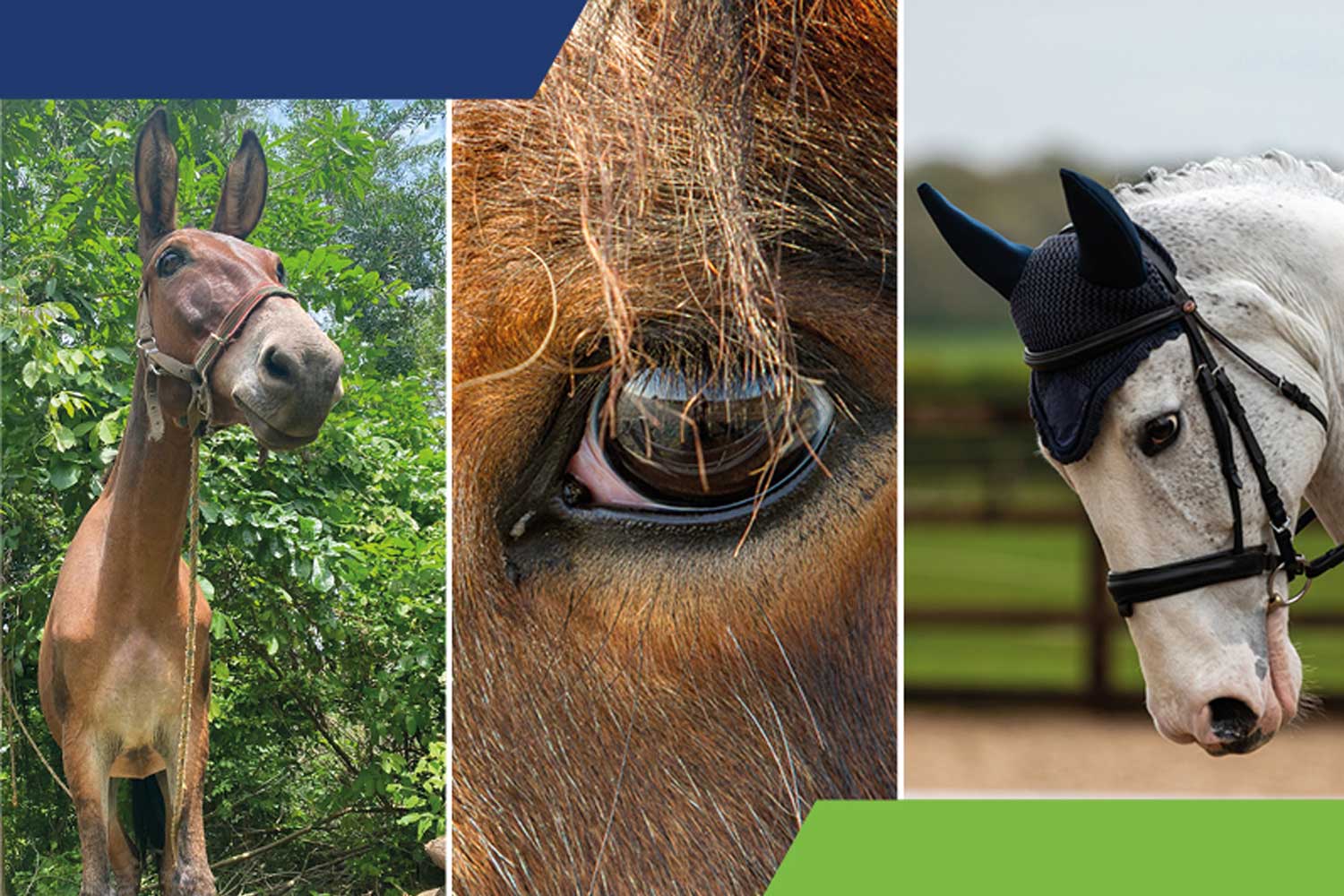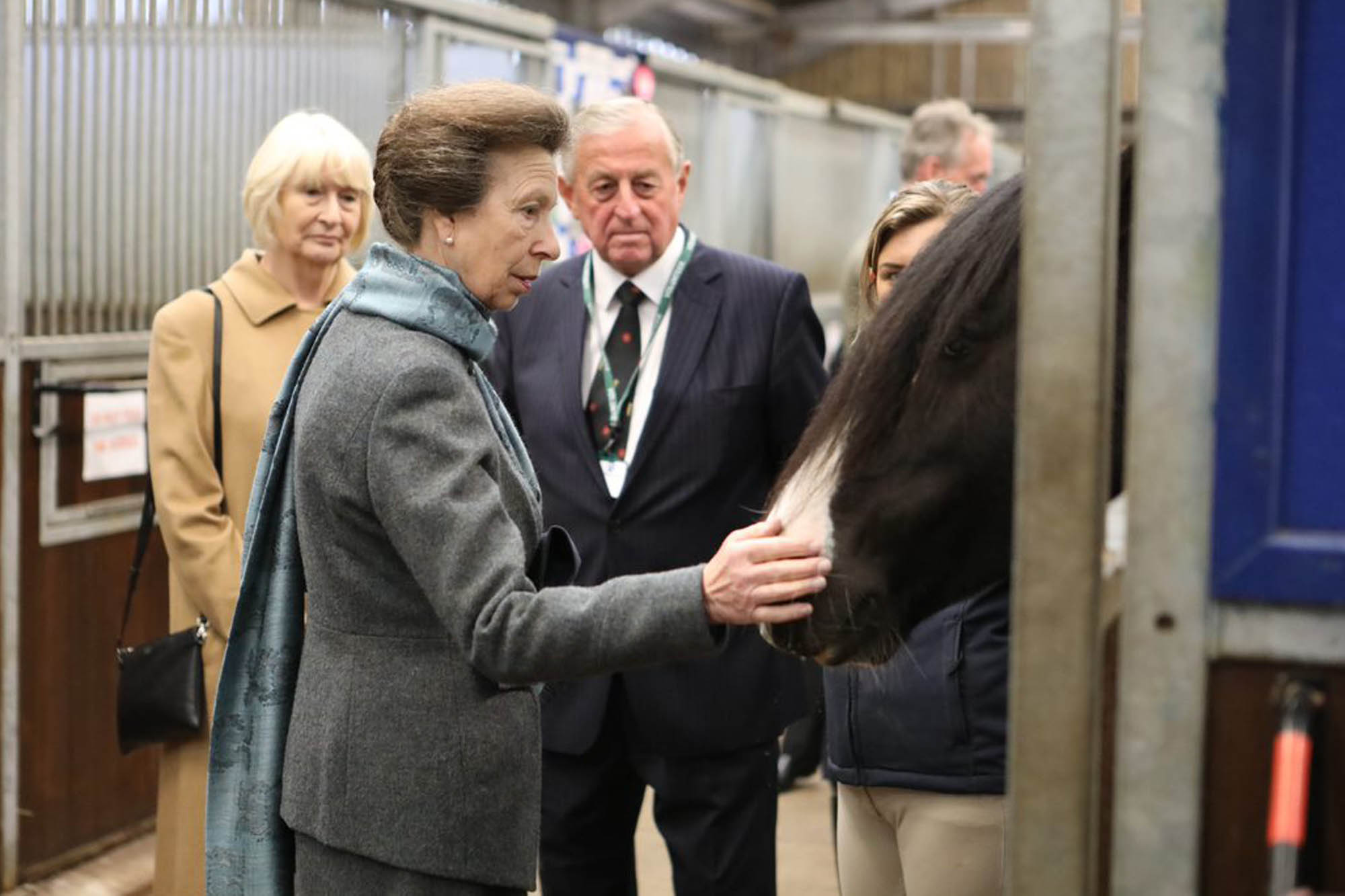Empathy, education, and evidence: the take-home messages from our 25th annual conference
Find out how an international line up of speakers explored “When does use become abuse?”.
Posted on 12/12/2022

Our 25th annual conference took place in November 2022 and examined the sensitive topic of “When does use become abuse?”. (You can find out more about our speakers and watch the conference recording.) Our Chief Executive Roly Owers explained that the theme was chosen because, “Society is increasingly suspicious of traditional uses of animals and, thanks to science, we know more especially about what horses need and how what we do impacts on them. Today’s focus is on leading the debate on what can be done to establish an even stronger horse-human relationship, and a fairer partnership. This applies to all the horses we help – be they horses in need, sport and leisure horses or horses used in work and production.”
Whether we care for working equids or world-class equine athletes, our speakers – who came from industry, academia, and horse sport – believed that all of us in the horse world must consider the latest scientific evidence and be prepared to update the way we keep our horses – especially since equestrianism’s social licence to operate (SLO) is under scrutiny from the wider world. The importance of an evidence-based approach was recognised not just for training horses themselves but also for educating owners, carers, and handlers about how equines learn. With increased understanding, a handler’s attitude and approach can be altered dramatically – and the equine’s welfare can benefit hugely. US eventer Matt Brown put it beautifully in his presentation: “We should seek to understand horses as horses, not animals with human emotions and motivations”.
Using horses for tourism need not imply poor welfare, especially when their work and care are designed around the horses’ needs, explained Mark Wentein, Chairman of the European Horse Network and operator of a prominent tourist horse carriage business in Bruges. He spoke passionately about the positive effect horses have on people, and discussed how the combination of robust regulation, transparency, working with welfare organisations and regulators, and using experienced carriage drivers all helped to ensure that visitors to Bruges could experience the city to the sound of hooves whilst the horses’ wellbeing is protected.
Education and understanding were repeatedly recognised as vital by presenters, along with the message that saying “we’ve always done it that way” doesn’t mean a particular method is necessarily effective or appropriate. In fact, all of us who interact with horses need to be prepared to look at the approaches we’re used to and ask ourselves if, truthfully, we could update them and improve our horses’ welfare as a result. How we think and speak about our horses matters too: labelling horses as ‘naughty,’ ‘disobedient,’ or ‘nasty,’ for example, can often be a way of justifying our own lack of understanding, patience, or skill, and offloading blame onto the horse.
Empathy was another recurring theme. Tamara Tadich, Associate Professor of the Universidad Austral de Chile, explored how empathy can positively influence the relationship an equine has with the person handling, training, or caring for them. She explained that any one horse-human relationship is affected by past experiences, whether positive, negative, or neutral. By promoting more positive experiences for both horse and human, we can directly improve the equine’s welfare, whether they’re a working equid, an elite sports horse, or a much-loved child’s pony.
With equestrianism under close scrutiny from wider society, it’s never been more important for those of us involved with horses to be able to demonstrate that their welfare truly is being put first. By not being afraid to admit where we ourselves – or our methods – may have shortcomings, and by being open to education and implementing evidence-based changes, we can protect our horses’ mental and physical wellbeing, ensure that use does not become abuse, and help maintain equestrianism’s social licence to operate.
Further resources
- Find out more about our speakers and watch the conference recording.
- Find out more about what a social licence to operate is.
- Find out how we help improve the welfare of horses involved in sport and leisure.
Topics
Related Blog Posts

Plan for an emergency when you’re not around – help us to help your horse
Deputy Chief Field Officer Jon Phipps has top tips for owners on making plans just in case your horse injures themselves when you’re not there.

How to help a needle-shy horse overcome their fear
Grooms Amy and Emily explain how they work with horses who are nervous with needles before a visit from the vet.
Recommended News Articles

Webinar: Day in the Life of a Sports Horse
Ever wondered how top equine athletes can be managed with a focus on positive welfare?

Charity’s appeal given boost on national radio by well-known TV gardener
TV gardener Alan Titchmarsh has lent his support – and voice – to our Welfare Line Appeal.

Expanded Penny Farm Visitor Centre receives royal stamp of approval – “Now it can play an even bigger role”
World Horse Welfare President HRH The Princess Royal formally opens expanded facilities at popular Lancashire attraction.
Enjoy reading stories like this?
Join over 55,000 other horse lovers and sign up for our email newsletter

Join over 55,000 other horse lovers and sign up for our email newsletter
Sign me up now